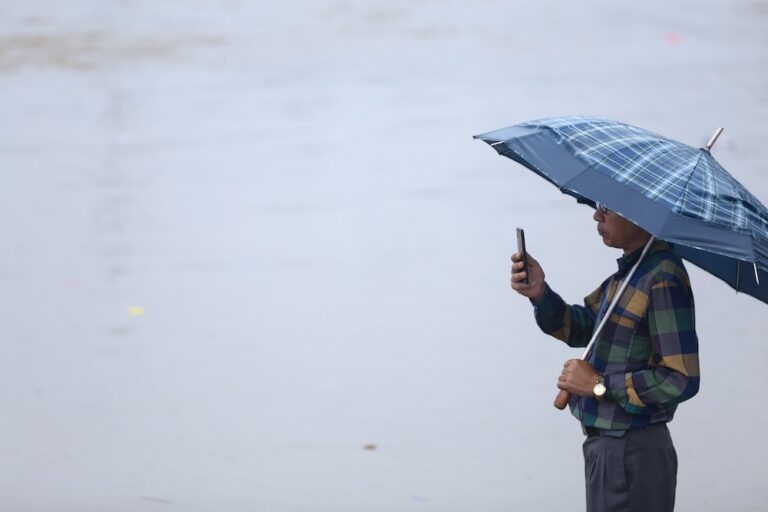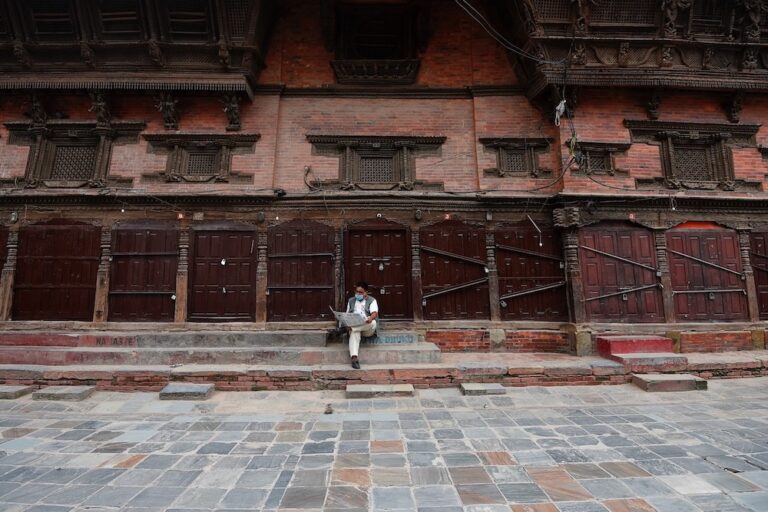(CEHURDES/IFEX) – Journalist Rabin Prasad Thapalia, of the local weekly “Ruparekha”, published in the Nuwakot district, has received death threats from Communist Party of Nepal (CPN-Maoist) cadres for publishing a critical news report on Maoist attacks in western and central Nepal. On 24 February 2003, Thapalia informed journalists in Kathmandu that the CPN-Maoists had handed […]
(CEHURDES/IFEX) – Journalist Rabin Prasad Thapalia, of the local weekly “Ruparekha”, published in the Nuwakot district, has received death threats from Communist Party of Nepal (CPN-Maoist) cadres for publishing a critical news report on Maoist attacks in western and central Nepal.
On 24 February 2003, Thapalia informed journalists in Kathmandu that the CPN-Maoists had handed him a letter on 11 January, urging him to publicly retract a story published in “Ruparekha”.
Thapalia had reported on an 8 September 2002 Maoist attack on Sandhikharka (Arghakhanchi district), and a 7 September attack on the Bhiman police post (Sindhuli district). According to the journalist, his article focused on the grief of the widows of security personnel who were killed in the two attacks.
“Despite the publication of a retraction in the paper, the CPN-Maoists handed me another letter on 30 January, saying that the statement did not go far enough,” Thapalia informed journalists at the Federation of Nepalese Journalists (FNJ) office. The authors of the letter also threatened to kill Thapalia if he did not “act accordingly” within 15 days from the date of the letter.
CEHURDES strongly condemns the CPN-Maoists’ ongoing actions against journalists, even after three weeks of cease-fire in the country. CEHURDES urges CPN-Maoist leaders to stop all forms of atrocities against journalists and free expression activists and ensure them free access to their strongholds for impartial news reporting.
Background Information
Following the imposition of a state of emergency on 26 November 2001, more than 150 journalists were arrested in different parts of the country. The state of emergency was lifted on 29 August 2002, but more than a dozen journalists remain in detention. Some journalists have reportedly been
physically and psychologically tortured. Several detainees’ whereabouts are unknown. There have been no reports of official charges filed against any of the detained journalists.
The security forces allegedly killed editor Krishna Sen in June 2002 after torturing him in custody (see IFEX alerts of 22 and 16 October, 27 and 8 August, 12 and 2 July, 26 June and 22 May 2002). Maoist rebels murdered journalist Nawaraj Sharma (see alerts of 23 and 22 August 2002), and journalist Ambika Timsina was killed on 12 December by unknown assailants (see alert of 20
December 2002). The rebels also abducted journalists Demling Lama and Dhan Bahadur Roka (see alerts of 11 and 9 April 2002). Lama managed to escape but Roka’s whereabouts remain unknown.
On 4 October, King Gyanendra assumed all executive powers by sacking Prime Minister Sher Bahadur Deuba. Elections scheduled for 13 November were postponed for an indefinite period. On 11 October, the King appointed a government under monarchist Prime Minister Lokendra Bahadur Chand, granting him limited powers.
On 29 January, the government and the Maoist rebels declared a cease-fire for the second time. The first cease-fire was broken in November 2001 after three rounds of talks.
Since February 1996, CPN-Maoist rebels have been fighting to establish a “people’s republic” and abolish Nepal’s constitutional monarchy. More than 7,000 people have lost their lives in the conflict. Nearly half of the victims were killed after the state of emergency declaration.


